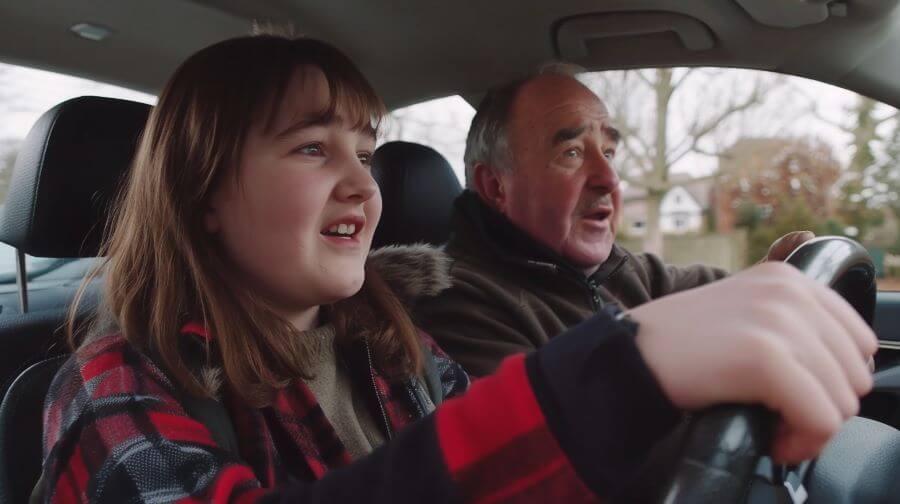
Contents
Last Updated on 11th March 2024
If you want to give the teenager in your life the best chance of passing their driving test, some at-home lessons can help improve upon the test-ready skills they can pick up from regular driving lessons before they learn to drive with a driving school.
There are an estimated 750,000-800-000 new drivers on the road each year, many of them teenagers, and having previous experience of ‘non-test’ driving can help bolster confidence when new drivers take to the road on their own.
The benefits of teaching your teen to drive yourself is mostly financial. You can save a lot of lesson costs by teaching the basics and build up their confidence. There’s no minimum number of lessons before you book and take your driving test, although an experienced and qualified driving instructor will be able to give more up to date guidance on how to pass the test.
Just remember you will need a lot of patience and need to maintain a positive attitude. And you may need to accept that you have picked up some bad habits yourself over the years. So don’t let your ego get in the way of their success, especially if you will struggle to stay calm.
It’s crucial to make sure you’re road-ready before heading out. You need a provisional driving licence to take lessons or practice, even on private land, and you must be named on the cars insurance.
And to supervise a learner driver, you must have a full drivers license for at least 3 years and be at least 21. It goes with saying you should have the sufficient driving skill and confidence.
A temporary car insurance policy can sometimes work out cheaper than adding your teen learner driver to your own cover, while you might need to invest in additional mirrors so you can provide the right advice.
You should also find a good quiet place to start, an empty car park free from obstacles is best, and will be needed for reverse parking practise. If you have a manual car, an automatic may be useful to help build confidence without stalling.
Once you’re ready to go, here are some of the benefits you and your teen may get.

Greater independence
Imagine the possibilities! Being able to drive opens a whole new world for teenagers, granting them the freedom to get to after-school activities, jobs, or even visit friends without relying on you for a lift. It’s an important milestone in your child’s life.
This newfound independence builds a sense of responsibility and allows them to develop time management skills as they juggle their schedule. It can also ease the burden on busy parents who are constantly on the go.
Improved confidence
Mastering a new skill like driving is a huge confidence booster for young drivers. As they navigate different road conditions and become more comfortable behind the wheel, they’ll gain a sense of accomplishment and self-reliance. This newfound confidence can translate into other areas of their life, from academics to social interactions.

Quality time together
Teaching your teen to drive may seem daunting, but it can also be a fantastic opportunity for quality time together. Car trips can spark meaningful conversations and allow you to connect with your teen in a relaxed environment. You can use this time to share your own driving experiences and impart valuable life lessons about road safety and responsible behaviour.
Improved chances of passing driving test
Let’s face it, driving tests can be nerve-wracking! By taking the time to teach your teenager the ropes yourself, you can ensure they’re comfortable with the car and familiar with the manoeuvres required for the test. Remember, a calm and confident driver is more likely to pass their test the first time around.
On road trips, spend the journey testing your budding younger driver on signs, the correct speed limit, and spotting potential hazards.

It’s not all smooth sailing!
While there are undeniable benefits, it’s important to be realistic. Teaching your teenager to drive requires patience and a strong work ethic from both parties. There will likely be moments of frustration, and it’s crucial to create a safe and supportive environment for learning.
- Lead by example: Your own driving behaviour will heavily influence your teenager, so make sure you practice good driving habits like avoiding distractions, using all mirrors, safe driving speed, the rules of the road, using your indicators and driving courtesy to other road users.
- Consider professional help: While you can certainly teach the basics yourself, helping your teen access professional driving lessons can provide additional structure and expert guidance when it comes to passing their test.




































